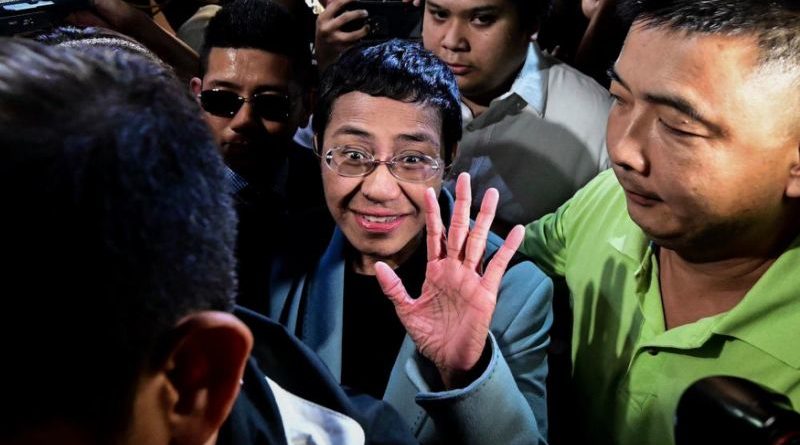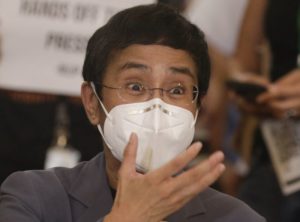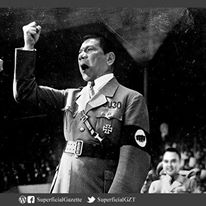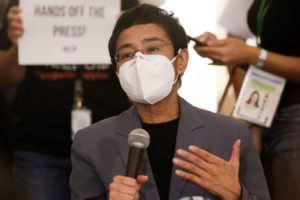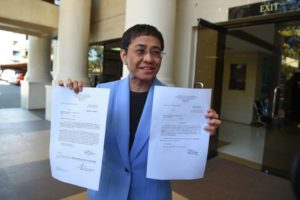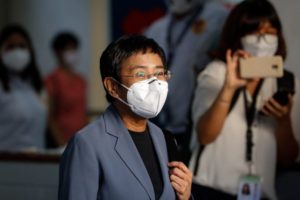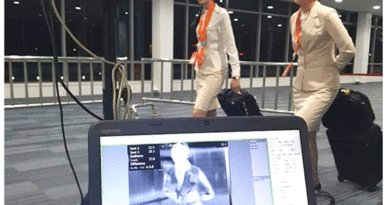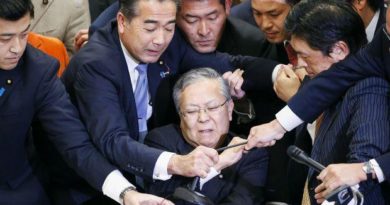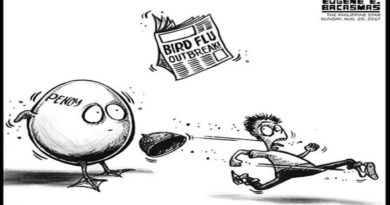MASS MEDIA-PRESS FREEDOM: Maria Ressa: everything you need to know about the Rappler editor
Photograph: Alecs Ongcal/EPA
Who is Maria Ressa and what is Rappler?
.
Maria Ressa is one of the most highly regarded journalists in the Philippines. She spent two decades working as an investigative reporter, foreign correspondent and both Manila and Jakarta bureau chief for CNN. She then headed the news division of the Philippines biggest TV news channel, ABS-CBN.
In 2012, she and three fellow female journalists came together to form Rappler, a online news platform with an ethos similar to a tech start-up, operating with a small team of 12 young reporters and developers. It was the first of its kind in the Philippines, and while initially seen as a site primarily for young readers, through the power of social media it has grown into the fourth-biggest news website in the Philippines with more than 100 journalists. Rappler also works as a fact-checker for Facebook in the Philippines in the fight against fake news.
Ressa’s role at Rappler has won her plaudits around the world. She was among the journalists named Time Person of the Year 2018, as well as numerous other prestigious journalism awards.
.
Related: The Guardian view on media freedom: it must be defended | Editorial
.


What has she done to attract Rodrigo Duterte’s attention?
Ressa and Duterte have been crossing paths for over 30 years. She first interviewed him in the 1980s when he was the mayor of Davao. In 2015, during his election campaign, she conducted a now infamous interview with Duterte in which he confessed to killing three people.
However, it was only after Duterte’s election in 2016, when Rappler began shining a spotlight on the pro-Duterte online “troll army” – who were pushing out fake news stories and manipulating the narrative around his presidency – that the organisation began to feel pressure from the administration. Rappler also began reporting critically on the extrajudicial killings, human rights violations and fast-rising death toll from Duterte’s brutal war on drugs, with stories demonstrating that the abuses were being carried out by the police with Duterte’s approval.
.


How did Duterte respond?
The first indicator that Rappler was about to be targeted was during Duterte’s State of the Union speech in July 2017, when, to Ressa’s surprise, he declared that Rappler was “fully owned” by the Americans and therefore in violation of the constitution.
Duterte later publicly declared: “Not only is Rappler’s news fake, it being Filipino is also fake.”
Ressa fully denies the claim, but in August 2017, the Philippine securities and exchange commission (SEC) began what Ressa described as a “six-month fishing expedition” demanding hundreds of documents. By January 2017, the SEC had decided to revoke Rappler’s licence but the case went to the court of appeals, where it was remanded back to the SEC for having no basis.
The government then began to investigate Rappler for tax evasion, alleging that the company failed to pay the $3m in tax due on the company’s 2015 bond sales to two foreign parties. While usually such investigations take a minimum of a year, the department decided to press charges in just five months. A warrant for Ressa’s arrest was issued in November 2018, and she turned herself into the authorities days later, where she posted bail and was released. The case is ongoing. Ressa told the Guardian the charges were “without basis and clearly politically motivated”.
Ressa is not the only Rappler journalist targeted. In 2018, Rappler’s political reporter was also banned from the presidential palace where press briefings take place.


What happened on Monday and what other charges is she facing?
In total, Rappler and its officers and staff have faced at least 11 government investigations and court cases. These include libel prosecutions, two criminal cases alleging illegal foreign ownership in her companies, and investigations into her old tax returns.
On Monday, Ressa and former Rappler researcher and writer Reynaldo Santos Jr were found guilty in a “cyber libel” case that relates to a story published in 2012 about Philippine businessman Wilfredo D Keng alleging connections to a top court judge. Keng had originally filed a lawsuit in 2017 claiming defamation which was dropped.
However, the justice department later allowed the case to proceed to trial by extending the liability period for such cases from one to 12 years.
.


SIGN UP TO RECEIVE OUR EMAIL
.
The most important news of the day about the ASEAN Countries and the world in one email: [email protected]
6.16.2020

